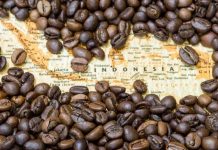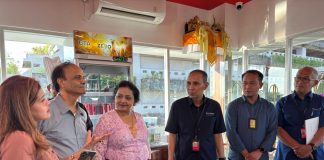
In Jakarta most homes are equipped with stoves using liquefied petroleum gas (LPG). As this fuel may be unfamiliar to some expatriates we would like to give you some tips on the safe storage and use of LPG cylinders.
• Purchase gas only from reputable dealers and do not accept cylinders that are not in good condition, such as rusty or damaged cylinders.
• If possible LPG cylinders should be stored outside your house to reduce danger from leaks.
• It is important to provide good ventilation in the place where your LPG cylinders are stored and used.
• Use only good quality branded regulators, hoses and rubber washers. Check regularly for cracks or splits in the rubber hose, and ensure that the screw clips are tight. The rubber washer between the cylinder and the regulator should also be in good condition and provide an effective seal so that no gas leaks out. Replace faulty attachments when necessary.
• Always be alert for the smell of leaking gas as carbon monoxide may be produced if LPG does not burn properly or is used in an unventilated area. For peace of
mind you may like to install a carbon monoxide alarm in areas where LPG is used.
• When using LPG for cooking, light your match or lighter first and hold it close to the gas ring first before turning on the gas.
• Make sure your gas stove is clearly marked to indicate which knob controls which gas ring.
• If you have household staff do not assume that they know how to use gas appliances safely, but show them exactly how you want them to use the gas and teach them what to do in the case of emergency.
• If there is a fire anywhere near your LPG cylinder, turn off the gas at the regulator if it is safe to do so.
• Ensure that you have a fire extinguisher that is well maintained and in good condition in the area where you will be using LPG.





